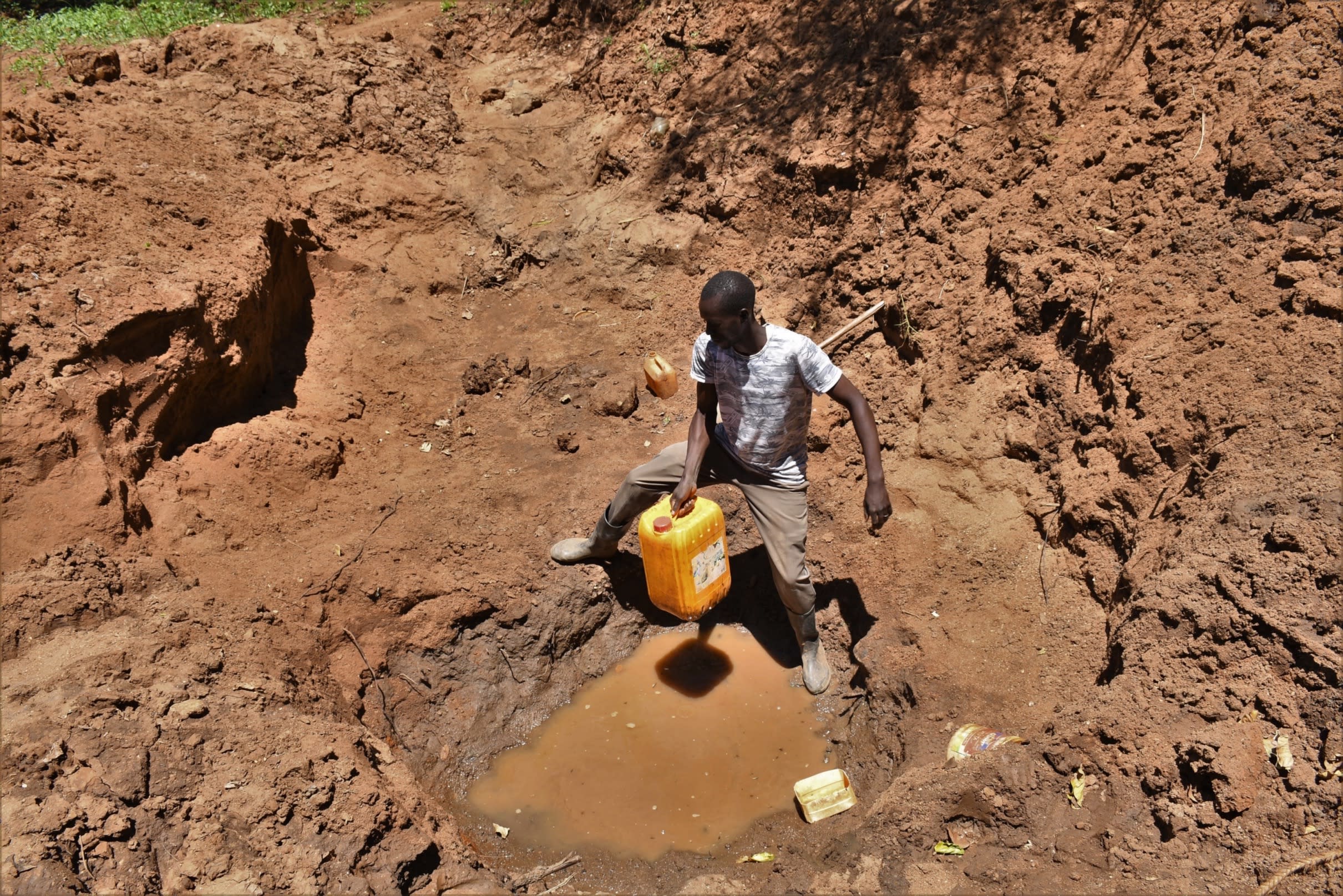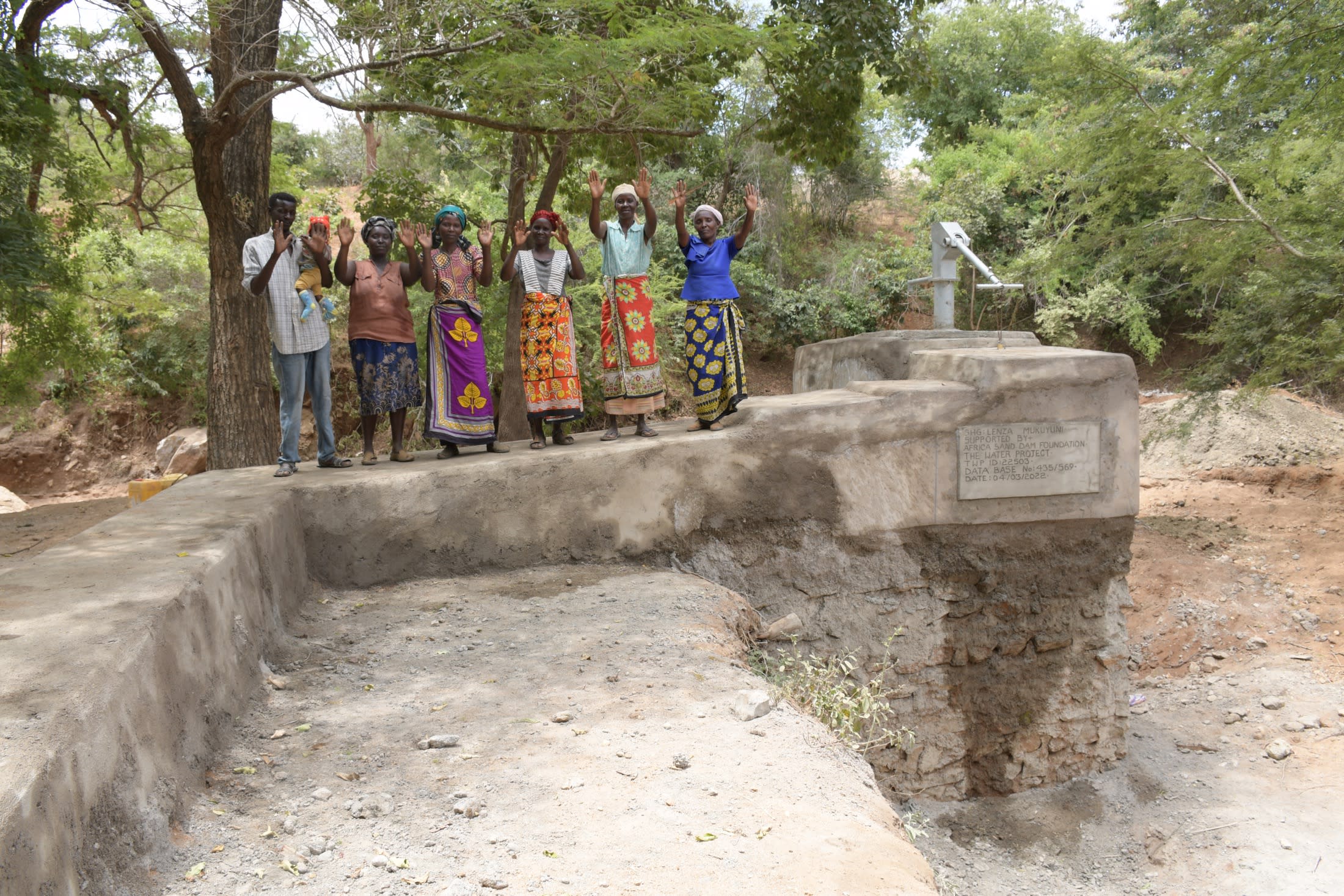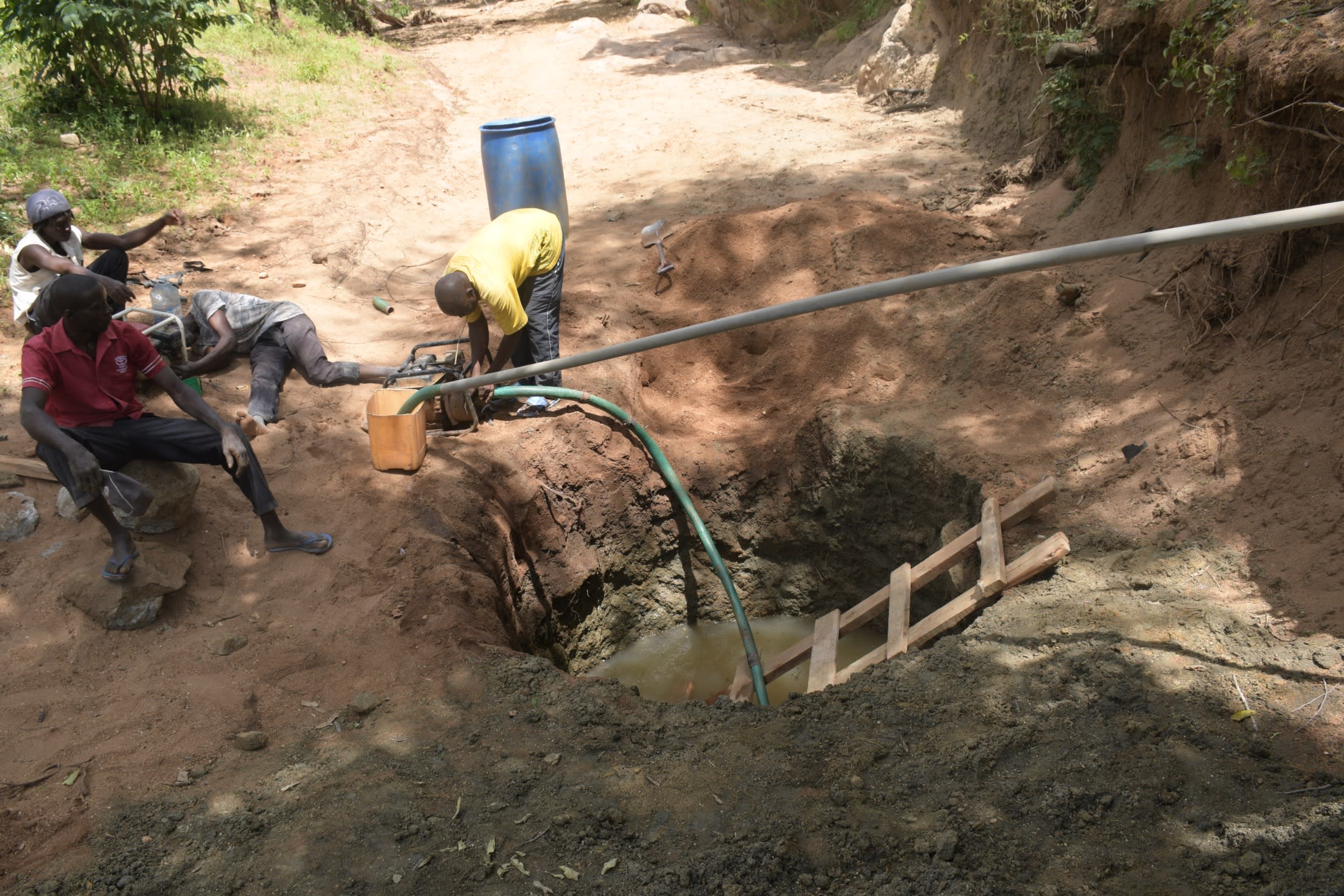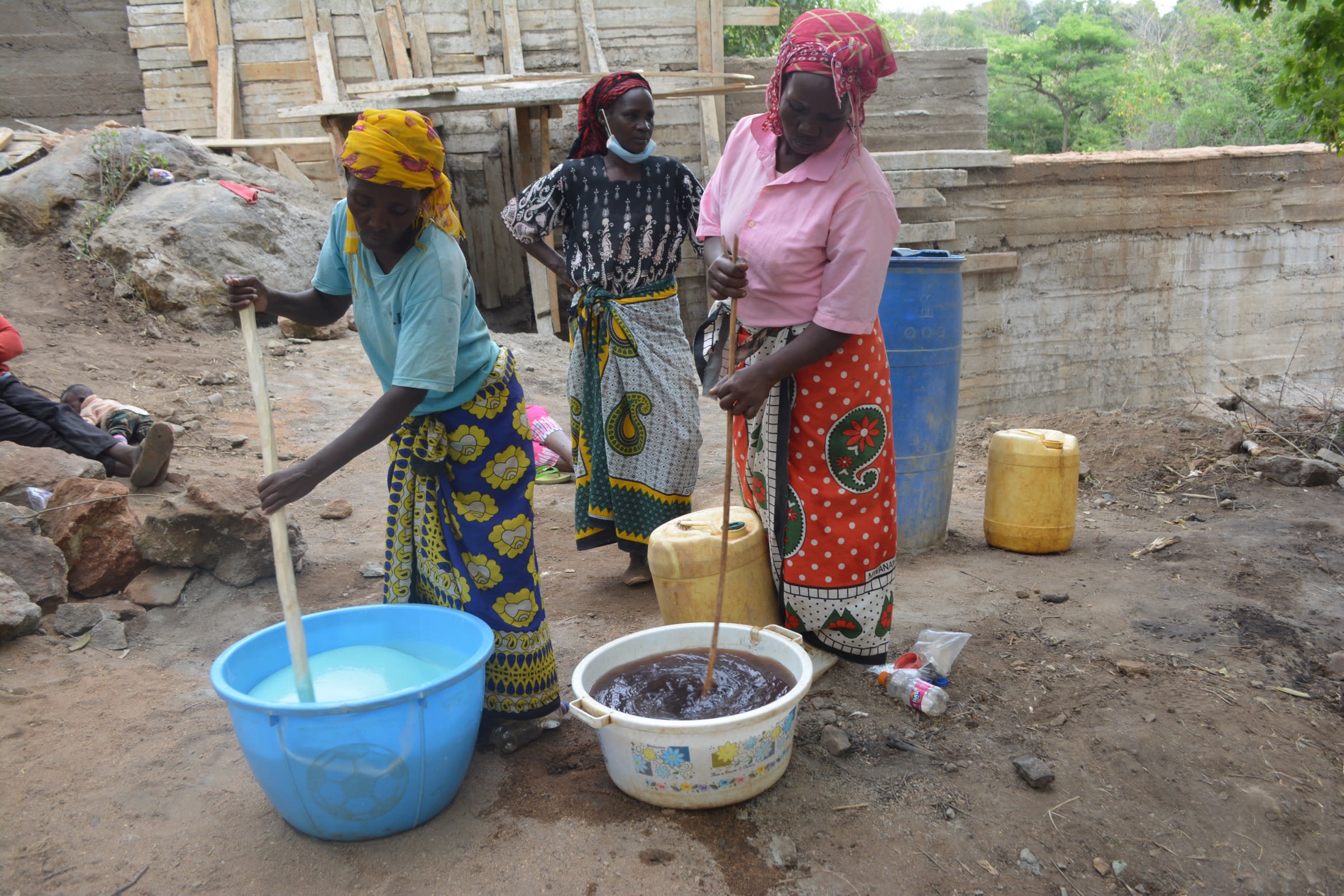Kithalani experiences short rains and extended drought periods that force the area residents to travel over 8 km (4.97 miles) to fetch water from the Tyaa River or dug scoop holes.
Patrick Mutemi, a 38-year-old father (pictured below at the water point), explained how the water crisis affected him. "I cannot practice farming on my land, which reduces my level of income. I normally have to seek jobs from members residing near the water point who practice farming. I am also building a brick house, but with the reduced water supply, I have no choice but to wait for the rains."

Every day, the community members of Kithalani who live farthest from the water point wake up very early and leave their children for more than half a day as they trek out in search of water. Those who have enough money to purchase a donkey use it to carry water—otherwise, they lug full jerrycans back with them over the tedious distance. During this time, the older children pack themselves off to school while the younger ones wait for the parents to return and care for the livestock.
By the time the parents arrive back home, they are already exhausted. They have little energy to farm, cook, or clean. Without good farming, the families cannot earn an income or grow enough crops to feed themselves. They cannot pay for school fees or medication. The water from the scoop holes is contaminated, leading to typhoid, amoeba, dysentery, and cholera.
The proposed site for the well and sand dam is close to most community members' residences and easy to access. The community members have already started gathering materials to construct their water projects and are excited to better their lives.
Reliable Water for Kithalani
Our main entry point into Kithalani Community has been the Lenza Mukuyuni Self-Help Group, which comprises households working together to address water and food scarcity in their region. These members will be our hands and feet in constructing water projects and spreading the message of good hygiene and sanitation to everyone.
Hand-Dug Well
This particular hand-dug well will be built adjacent to a sand dam project, which will supply clean drinking water once it rains. We have provided the group with the tools needed for excavation. With the guidance of our artisans and mechanics, the excavated well will be cased, sealed with a well pad, and then finished with a new AfriDev pump.
Excavation takes a month or more on average, depending on the nature of the rock beneath. Construction of the well lining and installation of the pump takes 12 days maximum. The well will be lined with a concrete wall including perforations so that once it rains, water will filter in from the sand dam.
This well will bring clean water closer to families.
New Knowledge
These community members currently do their best to practice good hygiene and sanitation, but their severe lack of water has significantly hindered reaching their fullest potential.
We will hold hygiene and sanitation training sessions with the Self-Help Group and other community members to teach essential hygiene practices and daily habits to establish at the personal, household, and community level. This training will help to ensure that participants have the knowledge they need to make the most out of their new water point as soon as the water is flowing.
One of the most important topics we plan to cover is handling, storage, and water treatment. Having a clean water source will be extremely helpful, but it is useless if water gets contaminated when it is consumed. We will also emphasize the importance of handwashing.
The community and we strongly believe that all of these components will work together to improve living standards here, which will help to unlock the potential for these community members to live better, healthier lives.
We typically work with self-help groups for 3 to 5 years on multiple water projects. We will conduct follow-up visits and refresher training during this period and remain in contact with the group after all of the projects are completed to support their efforts to improve sanitation and hygiene.

 Protected Dug Well
Protected Dug Well
 Rehabilitation Project
Rehabilitation Project

































